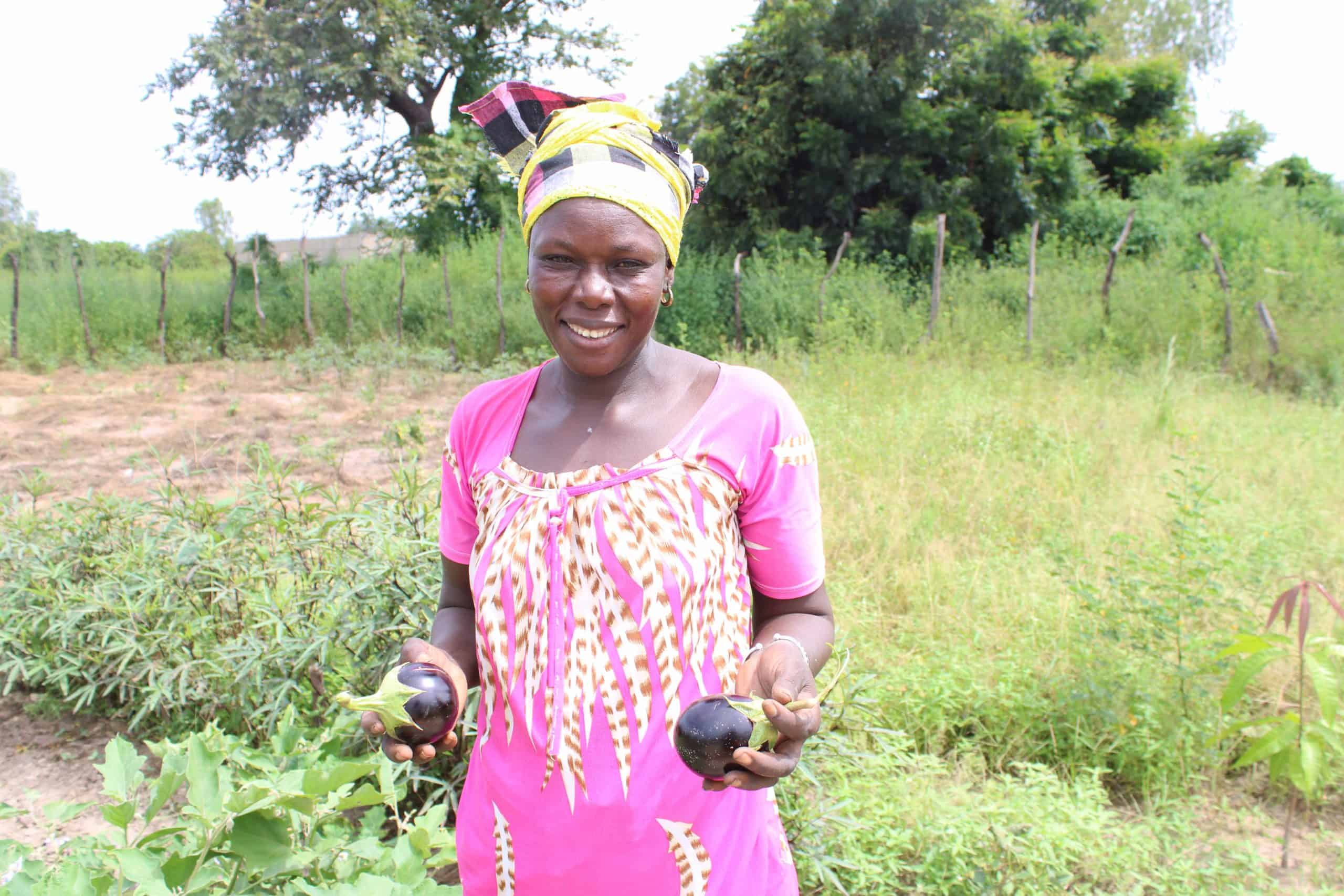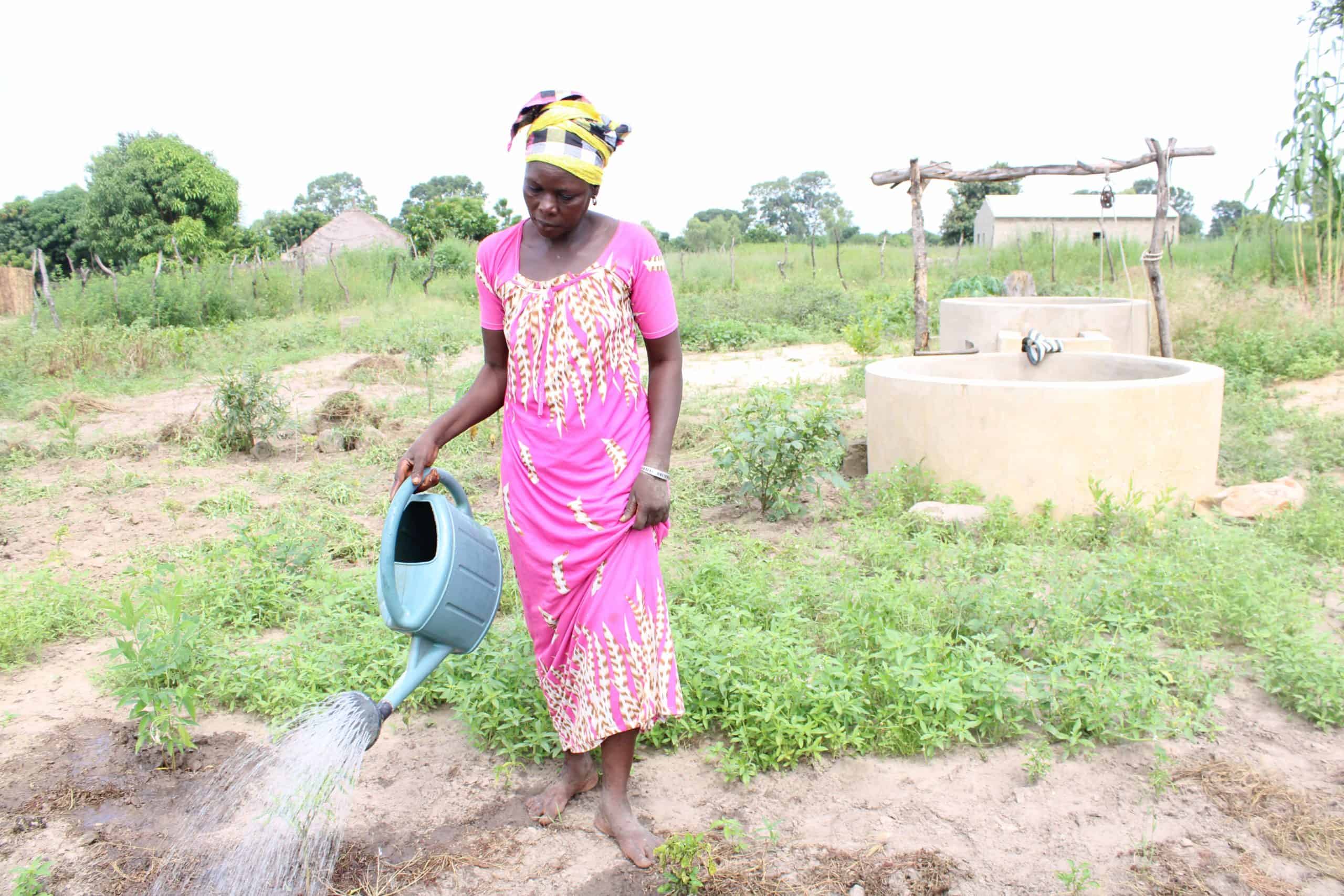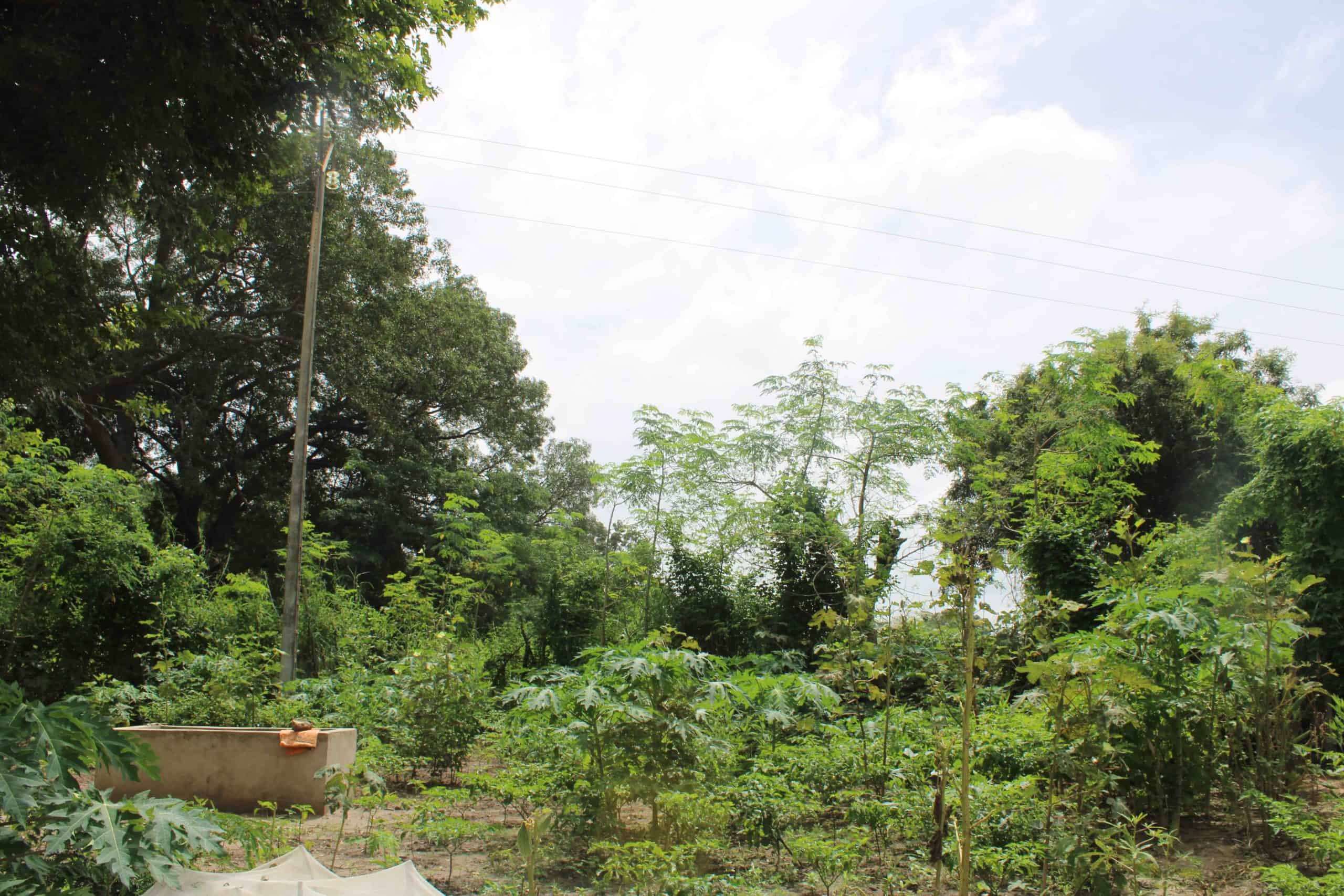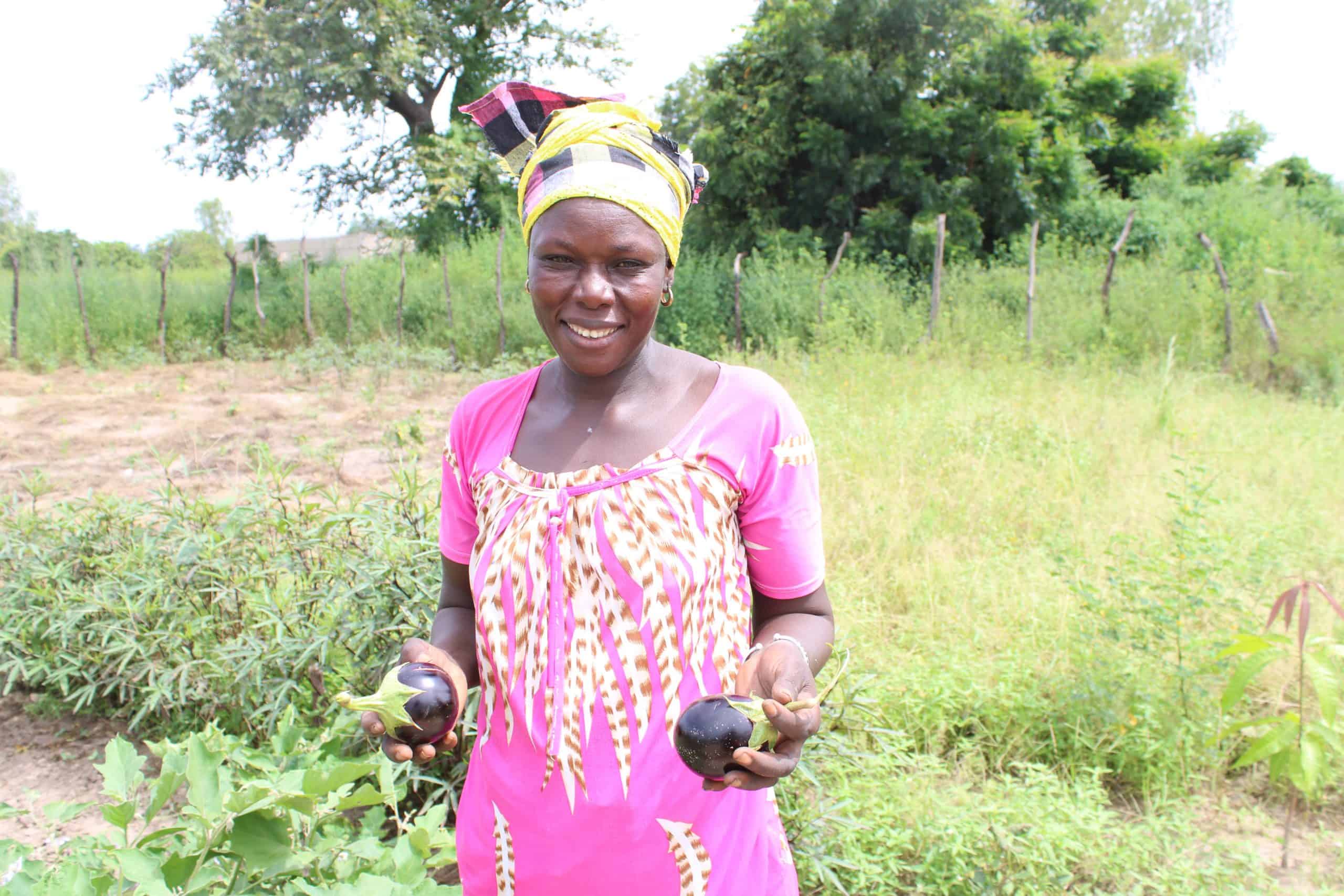Seynabou Diatta has a lot of mouths to feed. She and her husband have nine children. They also have parents, siblings, and extended family relying on them for food – bringing the household total to 40. After he was injured in a car accident last year, Seynabou’s husband could no longer work their farmland, leaving Seynabou solely responsible for feeding 40 people.

Feeding 40 people is a tall order anywhere in the world, but it is particularly difficult in a place like Fatick, Senegal – the second poorest region in the country. 90% of people living in Fatick, including Seynabou, are dependent on an industry that is blowing away with the rapidly degrading soil: agriculture.
“There were days when we only had one meal a day, it was very hard,” says Seynabou.
Fortunately for Seynabou and the loved ones that depend on her, meals are no longer few and far between. In March, 2020, Trees for the Future (TREES) began working in Fatick. Local staff reached out to local farmers like Seynabou with the opportunity to join the four-year Forest Garden Program.
“[At first] I was skeptical about participating in such projects,” she says. “In our village there are plenty of [aid] projects, but without really having a positive impact on the population.”
The difference between TREES’ program and typical aid programs is that TREES focuses on training farmers in sustainable farming techniques, giving them the tools and knowledge they need to succeed on their land long term. Seynabou quickly began learning (virtually) about regenerative agriculture and how trees and sustainable practices could benefit her land and her family.

“After comprehensive agricultural training in the Forest Garden, we started the nurseries,” says Moussa Diouf, TREES Fatick Assistant Technician. “Later, the harvests demonstrated the impact of TREES’ work.”
Today, Seynabou’s Forest Garden produces nutrient-rich eggplant, peppers, and much more.
“The whole family was delighted to be able to eat their appetites. The production was beyond my expectations, I harvested about 200 kilos of vegetables including tomato, eggplant, lettuce, okra,” Seynabou says. “It was great to watch my kids eat their fill.”
It’s not only the family diet that’s improving, Seynabou is saving more money through vegetable sales and a new income opportunity she found through TREES – she’s selling trees.
“Seynabou established one of the best tree nurseries in this area.” says Djiby Diouf, a TREES Senior Technician. “She did it in the best way and she really has a green thumb!”

In one week she made more than $270 USD by establishing tree nurseries and growing seedlings for neighboring farmers.
In recent years, Seynabou couldn’t afford to send her children to school and last year her daughter had to drop out of university. “Today those worries are far from me, I get to enjoy life again,” she says.
With her increased savings, Seynabou has put five of her children back in school. She plans to enroll her daughter in University next year and dreams of being able to afford the cost of specialized schooling for her three disabled children in the near future.
